Iraq's Shi'ite-led government has made itself a target for insurgents determined to undermine the prime minister ahead of national polls next year.
By staking its reputation on improving security, Iraq's Shi'ite-led government has made itself a target for insurgents determined to undermine the prime minister ahead of national polls next year.
Local security forces helped tame much of the violence that has plagued Iraq since 2003, but the political manoeuvring ahead of the March 7 parliamentary poll magnifies festering sectarian divisions and gives insurgents a chance to make an impact.
Police say car bombs killed 112 people in Baghdad on Tuesday, the latest attack on government facilities that reflect a tactical shift by insurgents who for years aimed their bloody attacks on softer civilian targets such as markets.
Militants linked to al Qaeda have claimed responsibility for the bombings. Similar attacks in October and August devastated the finance, foreign and justice ministries, killing hundreds, and chipping away at prime minister Nuri al-Maliki's reputation for having improved security in Iraq.
Maliki was summoned on Thursday to parliament to answer for the attacks. Rumours abound of government sackings, shaking Iraq just as it prepares to host global oil chiefs for a crucial auction of oilfield contracts.
"Insurgents are aiming to shatter (Maliki's) legitimacy and sow more chaos among the different political groups. In some ways it works," IHS Global Insight Iraq analyst Gala Riani said.
The 2003 US invasion triggered years of sectarian bloodshed between Iraq's once dominant minority Sunnis and majority Shi'ites, who stand to dominate any democratic vote.
Sunni Islamist insurgents such as al Qaeda consider Shi'ites heretics, and by bombing Shi'ite targets, they were able to spark a sectarian war that almost tore Iraq apart.
But more recent attacks on Shi'ites have failed to trigger a similar response, partly due to government crackdowns on Shi'ite militias, militia ceasefires, and reluctance of the Iraqi public to support sectarian causes after years of war.
"The bad guys will observe the effect their strategies are having ... Whatever was happening, it wasn't working," said David Livingstone, security analyst at Chatham House.
While attacks are less frequent than before, spectacular bombings like the ones this week come at a sensitive time for Iraqi politics, where feuding has crippled progress on major legislation and delayed national polls.
Many Iraqis and analysts suspect the divisions may have even fostered collusion between militants and security forces.
Insurgents have been driven out of many areas over the past year, but they continue to strike in Baghdad and northern Iraq, where political squabbles between ethnic Kurds, Sunnis and Shi'ites over oil, land and power are ripe for exploitation.
Strikes at heavily guarded government buildings at the very least show some local forces, more loyal to their feuding political masters than the state, are not doing their job.
"Clearly the attacks would have been extremely difficult without some form of insider cooperation. I think that's what it highlights ... that Iraq is still so divided," Riani said.
Overall violence has fallen, and November saw the lowest civilian death toll in Iraq since 2003. This has emboldened Maliki, who has staked his reputation on security.
"The environment has changed. Insurgents are unable to do a large number of attacks," said Rohan Gunaratna, author of a book on al Qaeda and professor at a terrorism research centre.
But security forces' successes may have forced insurgents to consolidate limited resources for major, better-timed attacks. The daily drip-feed of medium to low level casualties no longer grab headlines.
Iraq's relative calm made Tuesday's bombings and the attacks in October and August all the more jarring, and the timing -- as Maliki prepares to campaign for a March 7 parliamentary election on a law and order platform -- all the more difficult for the prime minister.
"Insurgents want to send a very powerful signal. Iraq is not stable or secure, and is still in their hands," Gunaratna said.
![submenu-img]() Balancing Risk and Reward: Tips and Tricks for Good Mobile Trading
Balancing Risk and Reward: Tips and Tricks for Good Mobile Trading![submenu-img]() Balmorex Pro [Is It Safe?] Real Customers Expose Hidden Dangers
Balmorex Pro [Is It Safe?] Real Customers Expose Hidden Dangers![submenu-img]() Sight Care Reviews (Real User EXPERIENCE) Ingredients, Benefits, And Side Effects Of Vision Support Formula Revealed!
Sight Care Reviews (Real User EXPERIENCE) Ingredients, Benefits, And Side Effects Of Vision Support Formula Revealed!![submenu-img]() Java Burn Reviews (Weight Loss Supplement) Real Ingredients, Benefits, Risks, And Honest Customer Reviews
Java Burn Reviews (Weight Loss Supplement) Real Ingredients, Benefits, Risks, And Honest Customer Reviews![submenu-img]() Gurucharan Singh is still unreachable after returning home, says Taarak Mehta producer Asit Modi: 'I have been trying..'
Gurucharan Singh is still unreachable after returning home, says Taarak Mehta producer Asit Modi: 'I have been trying..'![submenu-img]() RBSE 12th Result 2024 Live Updates: Rajasthan Board Class 12 results DECLARED, get direct link here
RBSE 12th Result 2024 Live Updates: Rajasthan Board Class 12 results DECLARED, get direct link here![submenu-img]() IIT graduate Indian genius ‘solved’ 161-year old maths mystery, left teaching to become CEO of…
IIT graduate Indian genius ‘solved’ 161-year old maths mystery, left teaching to become CEO of…![submenu-img]() RBSE 12th Result 2024 Live Updates: Rajasthan Board Class 12 results to be announced soon, get direct link here
RBSE 12th Result 2024 Live Updates: Rajasthan Board Class 12 results to be announced soon, get direct link here![submenu-img]() Meet doctor who cracked UPSC exam to become IAS officer but resigned after few years due to...
Meet doctor who cracked UPSC exam to become IAS officer but resigned after few years due to...![submenu-img]() IIT graduate gets job with Rs 45 crore salary package, fired after few years, buys Narayana Murthy’s…
IIT graduate gets job with Rs 45 crore salary package, fired after few years, buys Narayana Murthy’s…![submenu-img]() DNA Verified: Is CAA an anti-Muslim law? Centre terms news report as 'misleading'
DNA Verified: Is CAA an anti-Muslim law? Centre terms news report as 'misleading'![submenu-img]() DNA Verified: Lok Sabha Elections 2024 to be held on April 19? Know truth behind viral message
DNA Verified: Lok Sabha Elections 2024 to be held on April 19? Know truth behind viral message![submenu-img]() DNA Verified: Modi govt giving students free laptops under 'One Student One Laptop' scheme? Know truth here
DNA Verified: Modi govt giving students free laptops under 'One Student One Laptop' scheme? Know truth here![submenu-img]() DNA Verified: Shah Rukh Khan denies reports of his role in release of India's naval officers from Qatar
DNA Verified: Shah Rukh Khan denies reports of his role in release of India's naval officers from Qatar![submenu-img]() DNA Verified: Is govt providing Rs 1.6 lakh benefit to girls under PM Ladli Laxmi Yojana? Know truth
DNA Verified: Is govt providing Rs 1.6 lakh benefit to girls under PM Ladli Laxmi Yojana? Know truth![submenu-img]() Urvashi Rautela mesmerises in blue celestial gown, her dancing fish necklace steals the limelight at Cannes 2024
Urvashi Rautela mesmerises in blue celestial gown, her dancing fish necklace steals the limelight at Cannes 2024![submenu-img]() Kiara Advani attends Women In Cinema Gala in dramatic ensemble, netizens say 'who designs these hideous dresses'
Kiara Advani attends Women In Cinema Gala in dramatic ensemble, netizens say 'who designs these hideous dresses'![submenu-img]() Influencer Diipa Büller-Khosla looks 'drop dead gorgeous' in metallic structured dress at Cannes 2024
Influencer Diipa Büller-Khosla looks 'drop dead gorgeous' in metallic structured dress at Cannes 2024![submenu-img]() Kiara Advani stuns in Prabal Gurung thigh-high slit gown for her Cannes debut, poses by the French Riviera
Kiara Advani stuns in Prabal Gurung thigh-high slit gown for her Cannes debut, poses by the French Riviera![submenu-img]() Heeramandi star Taha Shah Badussha makes dashing debut at Cannes Film Festival, fans call him ‘international crush’
Heeramandi star Taha Shah Badussha makes dashing debut at Cannes Film Festival, fans call him ‘international crush’![submenu-img]() Haryana Political Crisis: Will 3 independent MLAs support withdrawal impact the present Nayab Saini led-BJP government?
Haryana Political Crisis: Will 3 independent MLAs support withdrawal impact the present Nayab Saini led-BJP government?![submenu-img]() DNA Explainer: Why Harvey Weinstein's rape conviction was overturned, will beleaguered Hollywood mogul get out of jail?
DNA Explainer: Why Harvey Weinstein's rape conviction was overturned, will beleaguered Hollywood mogul get out of jail?![submenu-img]() What is inheritance tax?
What is inheritance tax?![submenu-img]() DNA Explainer: What is cloud seeding which is blamed for wreaking havoc in Dubai?
DNA Explainer: What is cloud seeding which is blamed for wreaking havoc in Dubai?![submenu-img]() DNA Explainer: What is Israel's Arrow-3 defence system used to intercept Iran's missile attack?
DNA Explainer: What is Israel's Arrow-3 defence system used to intercept Iran's missile attack?![submenu-img]() Gurucharan Singh is still unreachable after returning home, says Taarak Mehta producer Asit Modi: 'I have been trying..'
Gurucharan Singh is still unreachable after returning home, says Taarak Mehta producer Asit Modi: 'I have been trying..'![submenu-img]() ‘Jo mujhse bulwana chahte ho…’: Angry Dharmendra lashes out after casting his vote in Lok Sabha Elections 2024
‘Jo mujhse bulwana chahte ho…’: Angry Dharmendra lashes out after casting his vote in Lok Sabha Elections 2024![submenu-img]() Deepika Padukone spotted with her baby bump as she steps out with Ranveer Singh to cast her vote in Lok Sabha elections
Deepika Padukone spotted with her baby bump as she steps out with Ranveer Singh to cast her vote in Lok Sabha elections![submenu-img]() Jr NTR surprises fans on birthday, announces NTR 31 with Prashanth Neel, shares details
Jr NTR surprises fans on birthday, announces NTR 31 with Prashanth Neel, shares details ![submenu-img]() 86-year-old Shubha Khote wins hearts by coming out to cast her vote in Lok Sabha elections, says meant to inspire voters
86-year-old Shubha Khote wins hearts by coming out to cast her vote in Lok Sabha elections, says meant to inspire voters![submenu-img]() Watch viral video: Man gets attacked after trying to touch ‘pet’ cheetah; netizens react
Watch viral video: Man gets attacked after trying to touch ‘pet’ cheetah; netizens react![submenu-img]() Real story of Lahore's Heermandi that inspired Netflix series
Real story of Lahore's Heermandi that inspired Netflix series![submenu-img]() 12-year-old Bengaluru girl undergoes surgery after eating 'smoky paan', details inside
12-year-old Bengaluru girl undergoes surgery after eating 'smoky paan', details inside![submenu-img]() Viral video: Pakistani man tries to get close with tiger and this happens next
Viral video: Pakistani man tries to get close with tiger and this happens next![submenu-img]() Owl swallows snake in one go, viral video shocks internet
Owl swallows snake in one go, viral video shocks internet












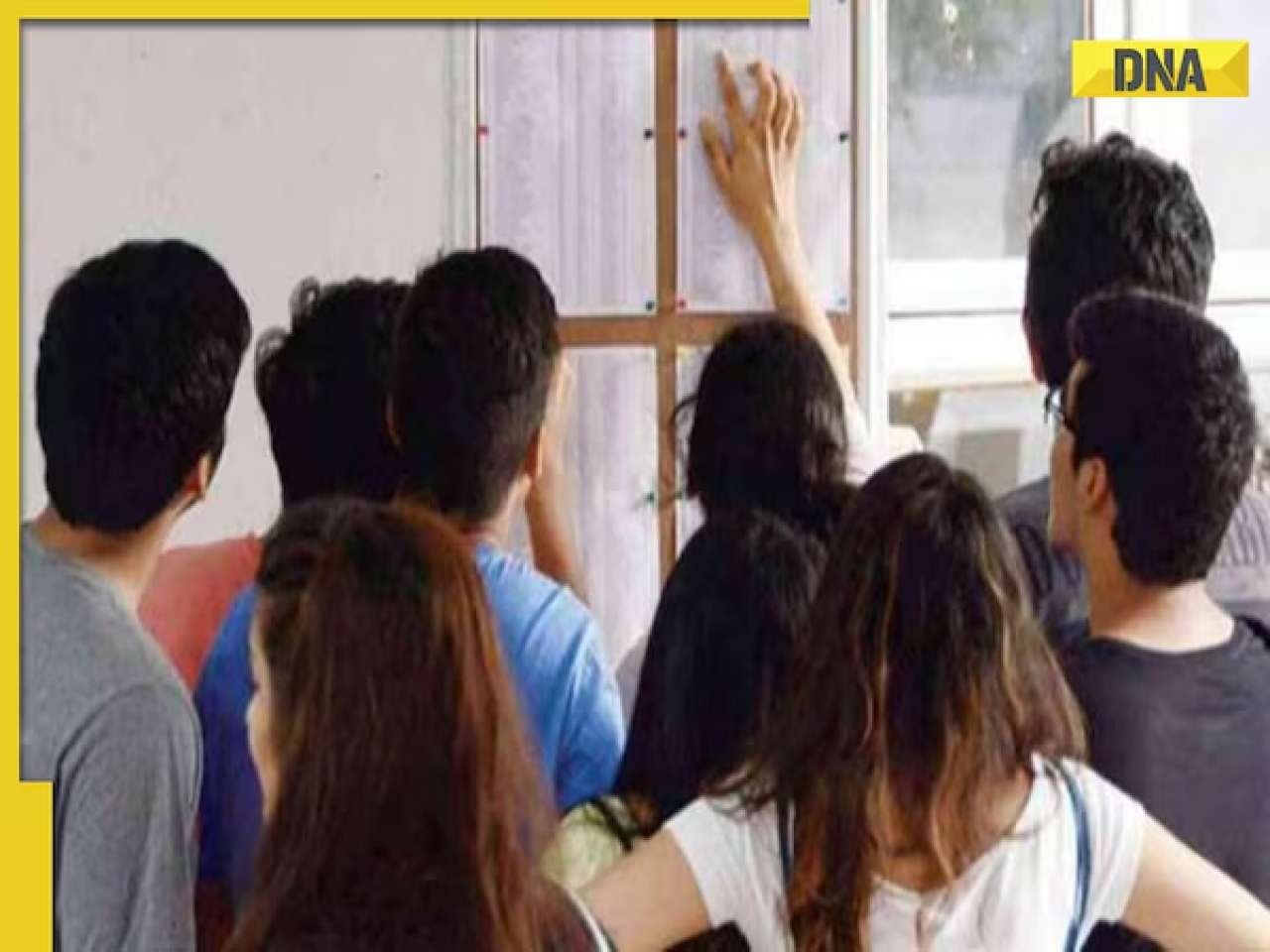

















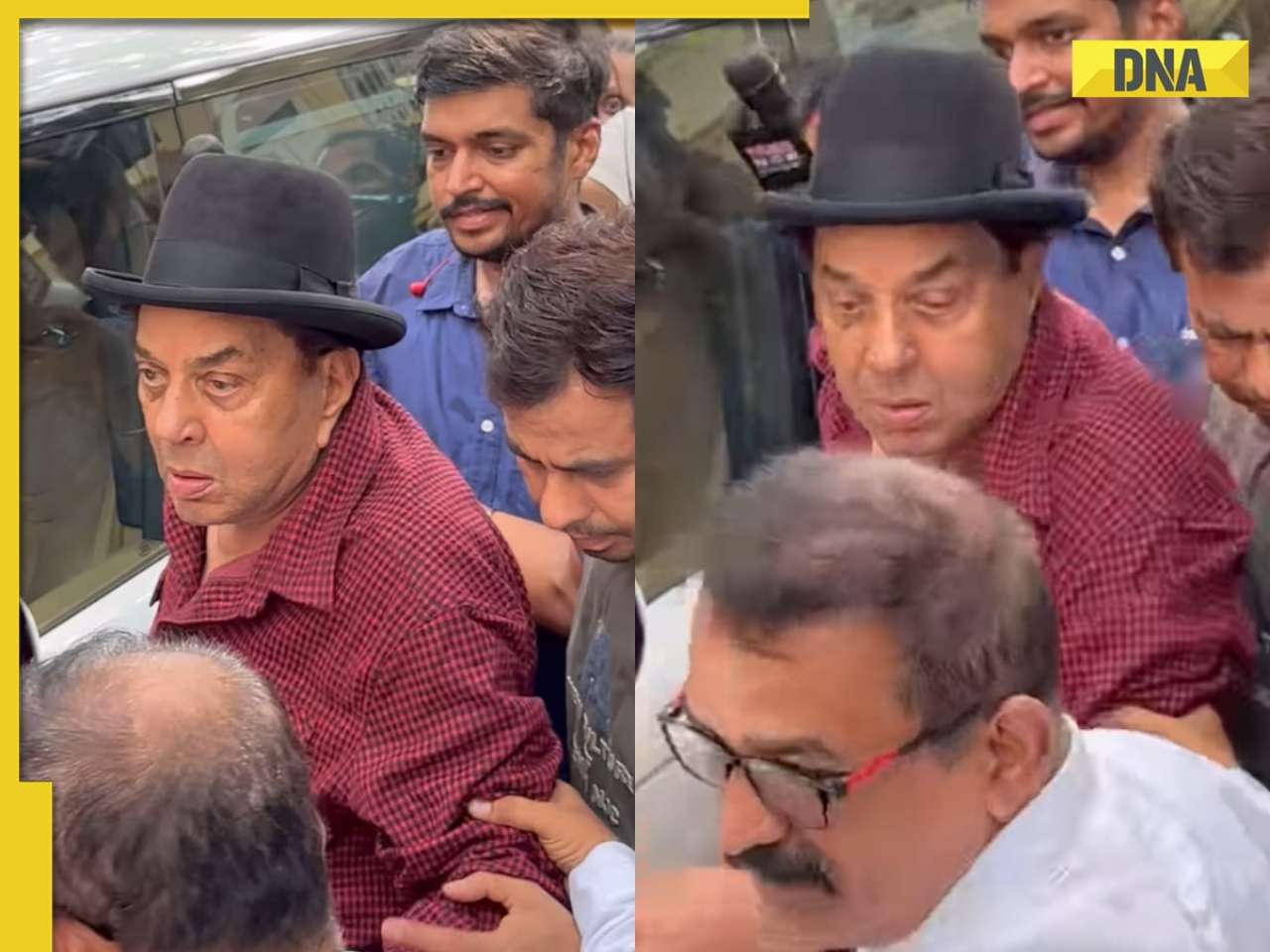


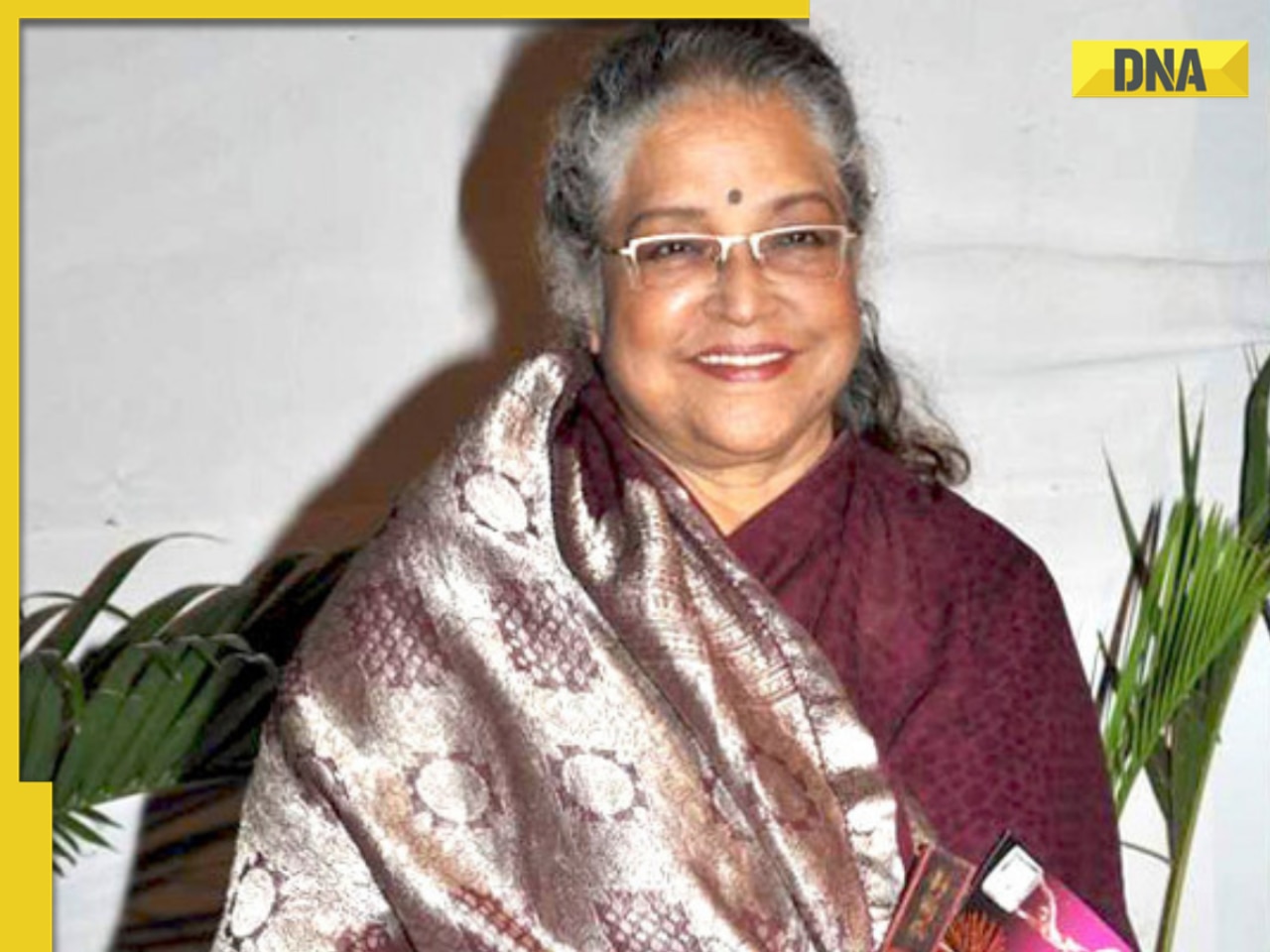

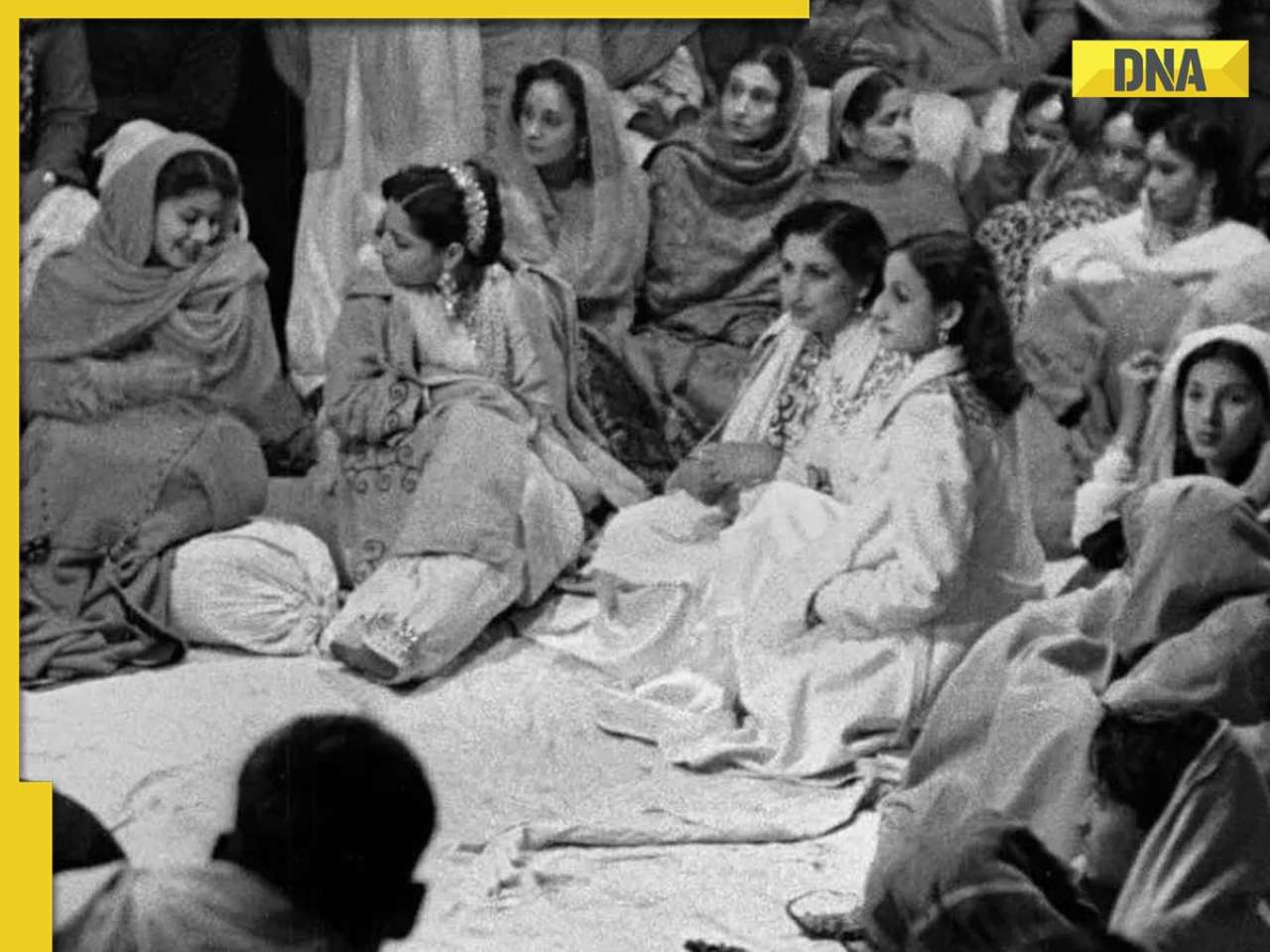





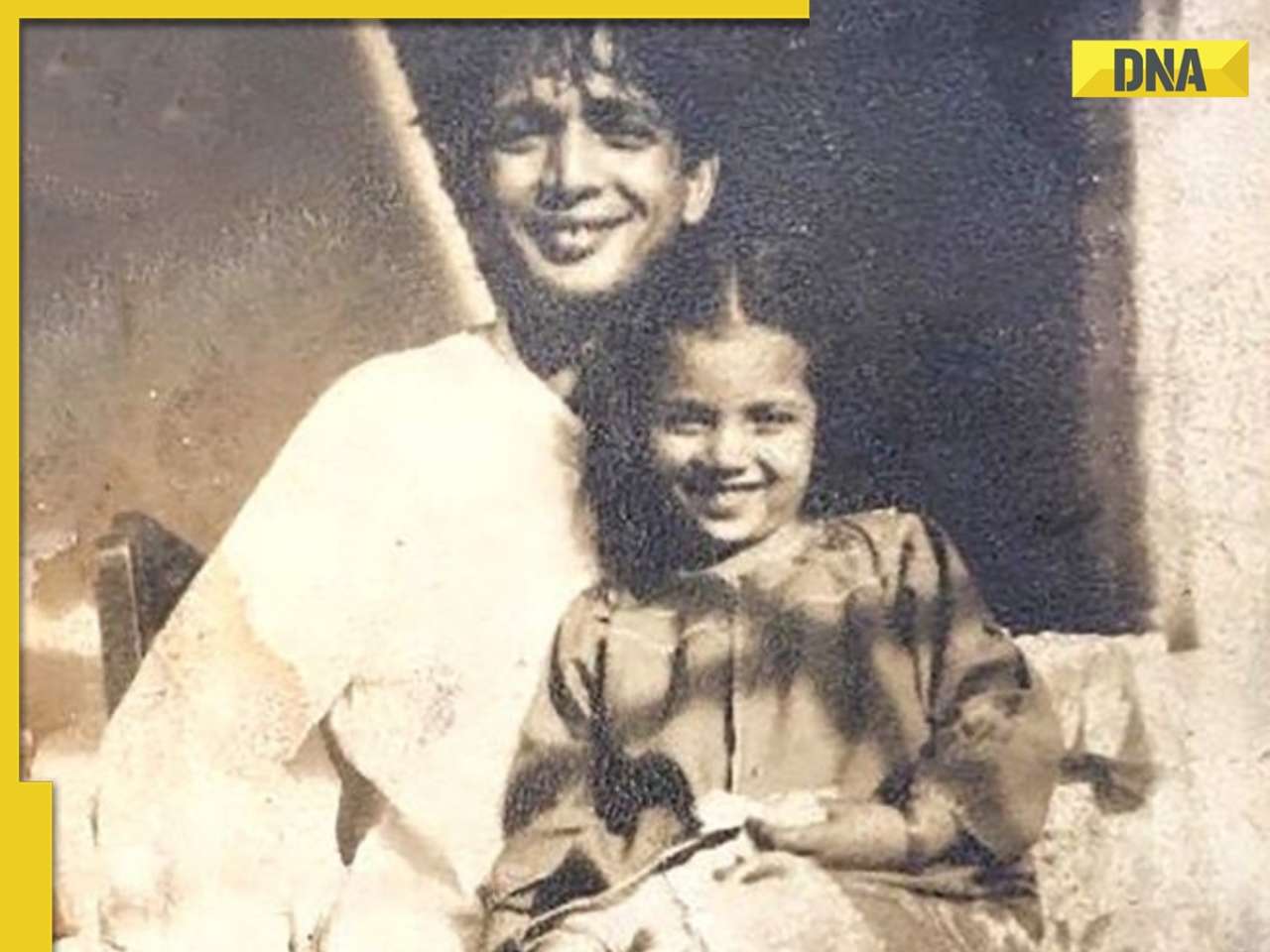
















)
)
)
)
)
)